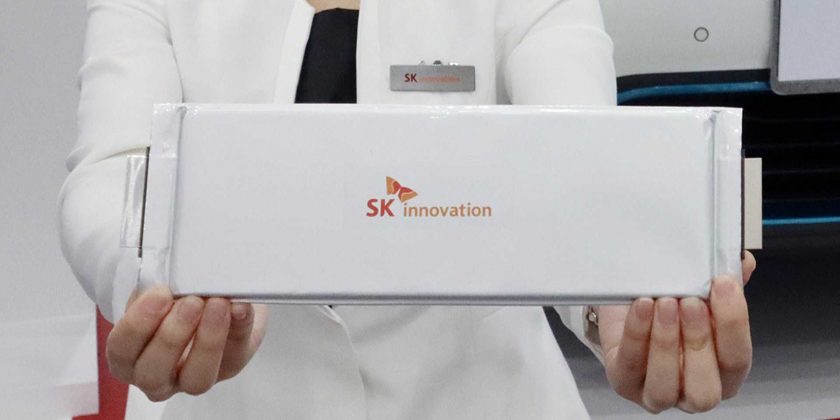Ford was criticized for pursuing battery contracts with SK Innovation “after evidence had emerged.” VW wanted at least a 4-year extension.
The U.S. International Trade Commission (ITC) released more details about the LG Chem-SK Innovation misappropriated trade secrets court clash that resulted in a 10-year ban for SK Innovation.
According to Reuters, in a redacted version of its full 96-page opinion, the ITC questioned why Ford “had continued to pursue battery contracts with SK Innovation “after SK’s misconduct in this investigation had come to light.” [in 2019]”.
ITC criticized Ford, which at that point had just a single EV model with SK Innovation batteries in the pipeline.
“It said Ford had sought business with SK even after a company employee in November 2019 was deposed in the commission’s investigation and at a time when it only had a contract with SK to supply batteries for the EV F-150.
“There is no explanation in the record why Ford would choose to ignore or excuse SK’s egregious misconduct,” the ITC added. “The fault here belongs with SK, as well as with those, like Ford, who deliberately chose to continue to cultivate prospective business relationships predicated on SK’s trade secret misappropriation.”“
Let’s recall that SK Innovation’s Ford F-150 Electric program is allowed to continue for 4 years, while Volkswagen’s ID.4 (MEB) program gets 2 years.
Ford would like to be allowed to continue to use SK Innovation battery cells also in new, undisclosed EVs, but was rejected:
“The ITC also rejected Ford’s request to extend exemptions to Ford’s unannounced new EVs.”
““Ford’s basis for extending the exemption is to take advantage of economies of scope by using similar SK batteries with misappropriated technologies across several unnamed vehicles,” it said. “The commission finds the evidence concerning the public interest does not support Ford’s request.””
Interestingly, Volkswagen also sought for “at least a four-year extension,” but got only two years.
“The ITC opinion said “VW’s preference for less expensive batteries using misappropriated LG trade secrets — in perpetuity, no less — is not a compelling public interest.””
The blame
It definitely throws new light on the case. According to the report, SK Innovation not only seriously misappropriated LG trade secrets, but then was destroying the evidence: “ordered at a high level and was carried out by department heads throughout SK”:
“The ITC said SK Innovation was at least a decade behind LG Chem citing “the very large volume of stolen trade secret documentation, and the expertise improperly acquired by (SK Innovation) from the former LG Chem employees it hired away.”
The ITC also found the “investigation demonstrates not merely SK’s eagerness to destroy documents, but also SK’s callous disregard to ascertain the scope of the destruction after the commencement” of ITC proceedings.”
LG Chem estimates that the tech was worth billions of dollars and they would like to see SK Innovation held accountable: “The release of the ITC’s decision puts to rest any questions of whether SK Innovation did anything wrong — they did, repeatedly, and now they must be held accountable.”
Battery plants
So what will happen next? Well, SK Innovation is building two battery factories (21.5 GWh total) at a site in Commerce, Georgia:
- the first: 9.8 GWh was expected to be ready in 2021 (mass production from 2022)
- the second: 11.7 GWh scheduled for 2023
SK Innovation might halt the construction if they will be allowed to produce batteries only for four and two years. The company counts on President Joe Biden’s administration (which has 60 days to eventually reject the verdict). But what then would hold SK accountable?
LG Chem’s LG Energy Solution calls to restart settlement negotiations
According to the South Korean media, LG Energy Solution calls to restart the settlement negotiations as soon as SK Innovation will accept the ITC ruling.
The Elec notes that LG Energy Solution might launch a related lawsuit, which will force SK Innovation to pay damages higher than a settlement:
“LG said if SK was to accept responsibility, it will engage in the negotiations flexibly, in consideration of the potential damages a settlement could cause to SK’s business operations. However, if SK continues to refuse in accepting ITC’s judgment, LG will start the related lawsuit [in Delaware], which could cause SK to pay damages higher than a settlement.”
The form of compensation is negotiable according to LG Energy Solution. The sum could be paid in cash, equity or royalties.
As we understand, if SK Innovation tries to evade the ban through President veto, then LG Energy Solution might have no mercy in the following lawsuit.
Sources:Reuters,thelec.net
Source: Read Full Article



